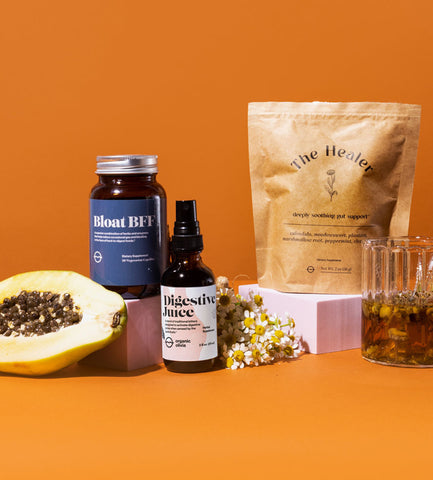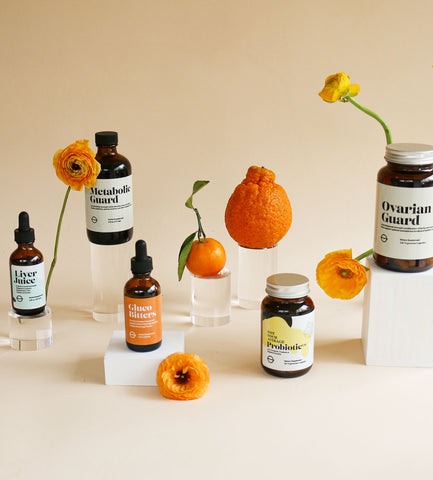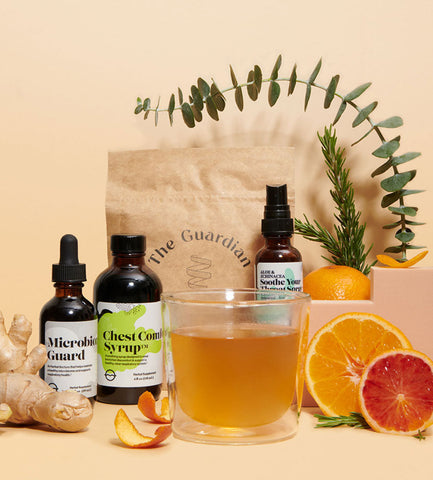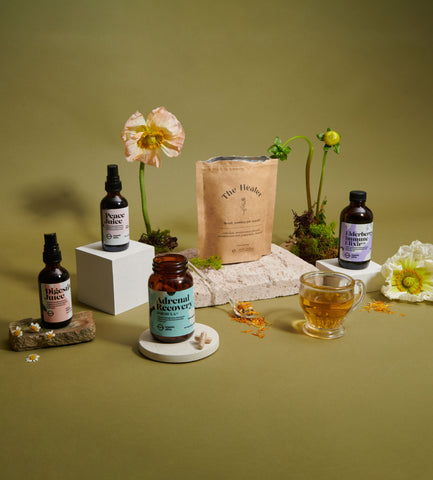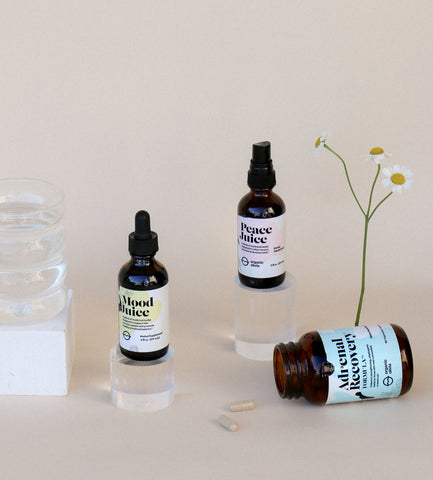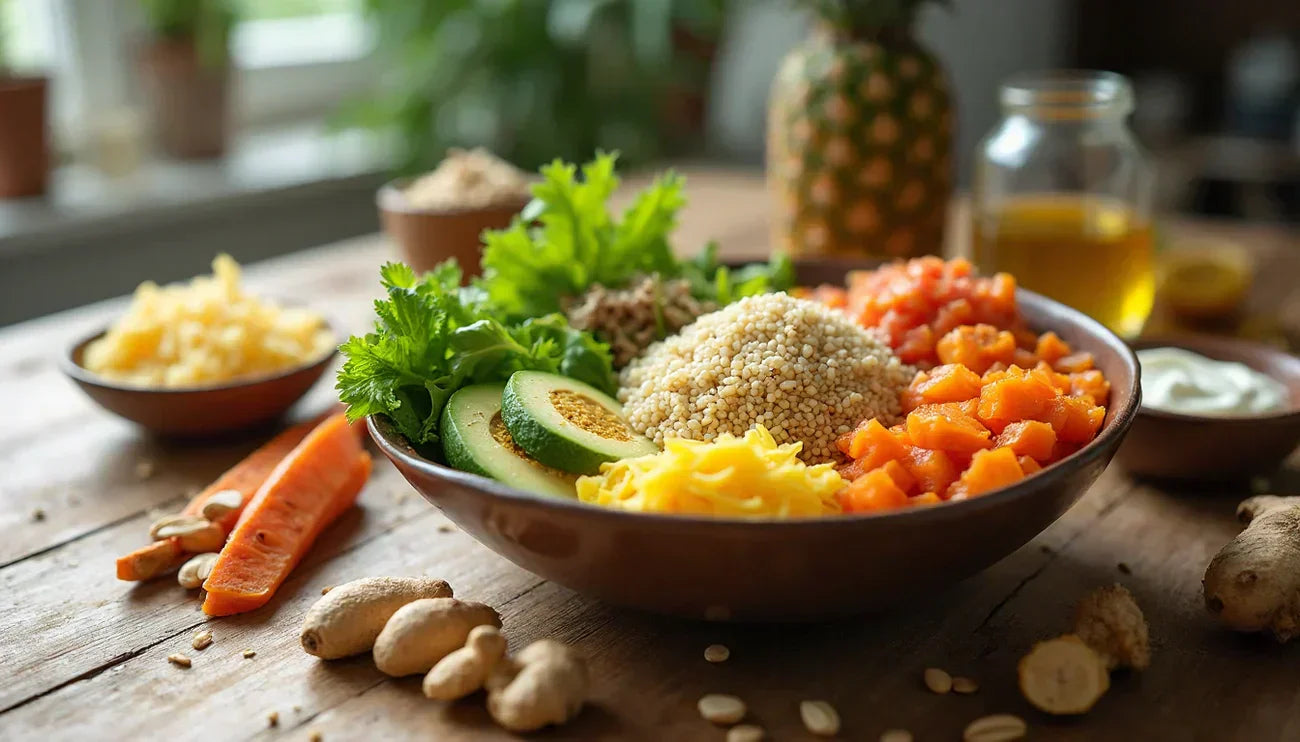Did you know that a whopping 15% of people in Western countries struggle with irritable bowel syndrome (IBS)? If you've ever experienced the discomfort of bloating, indigestion, irregular bowel movements, or that heavy feeling after meals, you're definitely not alone.
Here's something most conventional doctors won't tell you upfront - many digestive issues actually stem from super simple daily habits that you can change TODAY. When food hangs around in your system for more than 72 hours (yes, that's three whole days!), your risk of developing conditions like candidiasis, diverticulitis, or even cancer increases significantly. The good news? Your digestive health is largely in your hands.
While most health experts push for consuming 30 grams of fiber daily to prevent constipation and support healthy digestion, the reality is that most of us fall short of this target. And let's talk about transit time - ideally, food should take around 24 hours to move through your digestive system if you're eating enough fiber-rich foods.
From whole grains that nourish your colon to the MASSIVE impact stress has on your gut function, this guide covers all the essentials for improving your digestion naturally. You'll learn why proper hydration is crucial for softening stool, how daily movement enhances gut motility (even just a quick 15-minute walk after eating!), and the incredible benefits of foods packed with probiotics for digestive conditions.
If you're ready to give your digestive system a little extra TLC with solutions that actually work, you're in the right place. I'll walk you through approaches backed by both traditional wisdom and modern research, including how natural herbal support like Digestive Juice can give your gut the support it needs. Your journey to better digestion starts right here - let's dive in!

Digestive Juice
A fast-acting blend of digestive bitters used before or after meals to support digestion, occasional gas and bloating.*
STAR HERB: Gentian
Build a Gut-Friendly Diet
The foundation of better digestion starts right on your plate. Creating a truly nourishing diet for your gut goes WAY beyond just following whatever trendy eating plan is making the rounds on social media this month. It's about understanding the relationship between your food choices and how your unique digestive system responds to them.
Whole foods vs. processed foods: what to choose
Your gut microbiome absolutely THRIVES on diversity and quality nutrition. Research shows that processed foods can actually promote the growth of harmful bacteria in your digestive tract while giving you far fewer nutritional benefits. These foods are typically loaded with added sugars, inflammatory fats, and artificial ingredients that your body simply wasn't designed to process efficiently.
On the flip side, whole foods create a paradise for your gut ecosystem. High-fiber options like beans, intact grains, veggies, and fruits positively transform your gut health. Did you know these foods actually take almost 47% more energy for your body to digest compared to their processed counterparts? Your body works harder breaking them down—but this extra effort is EXACTLY what keeps your metabolism humming along nicely.
When you're standing in the grocery aisle trying to decide what to buy, ask yourself this simple question: How many steps did this food take to get to me? Foods with ingredient lists you can actually pronounce without a chemistry degree are generally going to support your digestion much better. Try filling half your plate with colorful plant foods to give your gut the variety it craves.
Easy to digest foods for sensitive stomachs
If your stomach tends to throw a little tantrum every time you eat, certain foods are particularly gentle while still giving you those essential nutrients:
-
Ripe bananas pack potassium that helps prevent constipation and can even help calm down diarrhea
-
Cooked vegetables like carrots, sweet potatoes, spinach, and green beans become so much easier to digest once their fiber gets partially broken down through cooking
-
Plain yogurt delivers those gut-loving probiotics without irritating sensitive tummies
-
White rice contains minimal fat and fiber, making it a go-to option when your digestion needs a break
-
Lean protein, like skinless chicken,or fish, go down much more smoothly than fattier cuts
Food preparation matters a TON here, too. Peeling fruits and veggies removes some of the fiber that might cause trouble, while cooking them thoroughly breaks down those tough cell walls that could otherwise lead to discomfort. Eating smaller meals more frequently throughout the day also puts less strain on your digestive system all at once.
Healthy fats that support digestion
Despite fat getting a bad rap for years, certain types are absolutely essential for proper digestion. Healthy fats help your body absorb fat-soluble vitamins and support the integrity of your intestinal lining. They also contribute to the health of your gut microbiome, which is basically the control center for nutrient absorption and immune function.
Omega-3 fatty acids, found in fatty fish like salmon and sardines, show particular benefits for gut health. Studies reveal that eating fatty fish twice weekly can help prevent cardiovascular disease in high-risk individuals. Plant-based healthy fats from avocados, olive oil, and nuts are also foods that help digestion.
For optimal digestion, try to include about two tablespoons of healthy fat in your daily meals. Options like extra virgin olive oil, avocado, and coconut oil provide benefits without overwhelming your digestive system. A few sprays of Digestive Juice can be the perfect companion to these healthy fats by supporting nutrient absorption and keeping your microbiome in balance.

Digestive Juice
A fast-acting blend of digestive bitters used before or after meals to support digestion, occasional gas and bloating.*
STAR HERB: Gentian
Just remember to keep your fat intake balanced—while healthy fats are your friends, too much of ANY type of fat can slow digestion and potentially trigger discomfort. Focus on quality over quantity when incorporating fats into your gut-friendly eating plan.
Balance Your Gut Microbiome
Your gut is a living ecosystem that houses trillions of tiny organisms working around the clock to keep you healthy. This bustling community, known as your gut microbiome, contains up to 1,000 different species of bacteria with a collective weight of about 2-5 pounds—basically the same weight as your brain. Pretty wild, right?
Why your gut bacteria matter
Those bacteria hanging out in your intestines aren't just passive roommates—they're active contributors to your overall health. They're constantly making essential nutrients, creating vitamins (especially vitamin K and those crucial B vitamins), helping break down complex carbs that your body can't digest alone, and even supporting your enteric nervous system. When this bacterial community gets thrown off balance, your whole body feels it.
When your gut bacteria get to feast on fiber, they produce these amazing compounds called short-chain fatty acids (SCFAs)—acetate, propionate, and butyrate. Butyrate is particularly special because it's the main fuel source for the cells lining your colon and can kickstart intestinal gluconeogenesis, which has awesome effects on your glucose and energy balance. These SCFAs also help maintain the protective mucus layer in your gut, essentially creating a barrier that stops toxins from sneaking into your bloodstream.
Your gut microbiome doesn't just affect digestion—it influences your immune system, brain function, and even heart health. The gut and brain are actually physically connected through millions of nerves, which is why what happens in your gut can literally change how your brain receives messages. This gut-brain connection explains why digestive troubles so often show up alongside anxiety, sleep problems, and mood changes.
Foods and habits that promote good gut flora
If you're looking to naturally improve or reset digestion by supporting those beneficial bacteria, here's what to focus on:
Eat a WIDE variety of plant foods with plenty of fiber. Different gut bacteria have different favorite foods, so variety matters more than quantity. Some of the best prebiotic-rich foods (these feed your good bacteria) to improve gut health include:
-
Fruits like bananas and apples
-
Vegetables such as asparagus, onions, and garlic
-
Whole grains and legumes
-
Fermented foods like yogurt, kimchi, and sauerkraut
Your lifestyle choices matter just as much as what you eat. Chronic stress can wreak havoc on your microbiome, while quality sleep promotes bacterial diversity. Regular movement and exercise boost both the numbers and types of beneficial gut bacteria.
One big thing to watch out for: overusing antibiotics. While sometimes necessary, they can seriously disrupt your gut ecosystem by wiping out both harmful AND beneficial bacteria. Also, be cautious with artificial sweeteners — studies show they might actually encourage the growth of unhealthy bacteria.
How Digestive Juice supports microbiome health
If you're serious about giving your gut microbiome extra support, a fast-acting blend of digestive bitters like Digestive Juice can be a game-changer. This all-natural blend contains concentrated plant compounds (polyphenols) that positively shift the balance of bacteria in your gut.

Digestive Juice
A fast-acting blend of digestive bitters used before or after meals to support digestion, occasional gas and bloating.*
STAR HERB: Gentian
This formula offers powerful support for comfort and healthy digestion by using bitter plant compounds that help ease occasional gas, bloating, and post-meal heaviness. You can use the spray before meals or if you’re wondering what to drink after a meal to help digestion, Digestive Juice can be used to help nip those discomforts in the bud.
What's really incredible is how quickly these changes can happen—some research shows that what you eat can shift your gut bacterial composition in just 24 hours. So when you add Digestive Juice to your daily routine, you're giving your gut microbiome an immediate boost of concentrated nutrients that support bacterial diversity and help resolve digestive issues naturally.
Practice Mindful Eating
You might be eating all the right foods but STILL experiencing digestive issues. Why? Because how you eat matters just as much as what you eat. Mindfulness might be the missing ingredient in your digestive health routine that nobody's talking about.
What to Do After Meals for Better Digestion
The 30 minutes after eating can make or break your digestive experience. I know it's tempting to flop onto the couch after a big meal, but resist that urge! Lying down right after eating is practically an invitation for acid reflux and sluggish digestion.
Instead, try taking a gentle 15-minute walk. This simple habit does wonders for moving food through your digestive tract by increasing blood flow to your gut. It's one of my favorite post-meal rituals, especially after dinner.
Sipping a small glass of water (about 4-8 ounces) helps flush sodium and supports digestion, but don't go overboard – too much liquid can actually dilute your stomach acid and make digestion harder. And unless you have specific digestive needs, maybe skip that post-meal coffee. It can speed up digestion too quickly and trigger heartburn for many people.
Chewing: Your Secret Digestive Superpower
Your digestion doesn't start in your stomach – it starts in your mouth! Chewing thoroughly is probably the most underrated digestive tool we have. Did you know it takes about 20 minutes for your brain to register that you're full? When you rush through meals, you're practically guaranteed to overeat. Research has found that slower eaters consumed 25% less food from snacks three hours after their meal.
When you really take time to chew your food:
-
You break food into smaller particles, creating more surface area for digestive enzymes to work their magic
-
Your saliva enzymes start breaking down food before it even reaches your stomach
-
Your body shifts into a "rest-and-digest" state that optimizes digestive function
Try chewing each bite 20-30 times – yes, count if you need to at first! Put your fork down between bites to naturally slow your pace. This takes practice but makes such a difference.
Creating a Mindful Eating Environment
Your eating environment affects your digestion way more than you might think. One of the biggest game-changers? Turn off those screens during meals! TVs and phones distract you from noticing your body's hunger and fullness signals.
Before eating, try spending just 5 minutes doing some relaxation breathing. This activates your parasympathetic nervous system – the state where your body can actually digest properly instead of being in fight-or-flight mode.
Establishing regular meal times helps your body develop consistent digestive rhythms. Your digestive system loves routine! And here's a super simple trick – serve smaller portions on your plate. This prevents overwhelming your system with too much food at once.
For those of you with particularly sensitive digestion, taking Digestive Juice before meals can be especially helpful, supporting food breakdown when paired with these mindful eating practices.
Remember that stress is like kryptonite for good digestion. Creating a calm, dedicated eating space signals your body that it's safe to direct energy toward digestion rather than stress responses. Your gut will thank you!
Use Natural Supplements Wisely
Let's talk about supplements - because while food should absolutely be your foundation, sometimes your gut needs a little extra help that even the perfect diet can't fully provide. Think of supplements as your digestive system's support team rather than a replacement for real food.
Probiotics, glutamine, and zinc for gut support
Probiotics are basically the good guys of the bacterial world. When you take a quality probiotic supplement, you're introducing beneficial bacteria into your digestive system that help restore balance and improve overall gut function. Not all probiotics are created equal though! Look for specific powerhouse strains like Lactobacillus plantarum (amazing for strengthening your gut barrier) and Bifidobacterium longum (helps calm inflammation in your gut). There's some pretty cool research from a 14-week study that found that zonulin (that's a marker of gut leakage) was significantly lower in people taking a multi-strain probiotic. Your gut literally became less leaky!
Zinc is another gut-healing superstar that works by strengthening the tight junctions in your intestinal lining. These tight junctions are exactly what they sound like - they keep things nice and tight so unwanted particles can't slip through into your bloodstream. A study from 2001 found that zinc supplementation actually strengthened the gut lining in people with Crohn's disease. Pretty powerful stuff for a simple mineral!
When to consider digestive enzymes
Your body naturally produces enzymes to break down food, but sometimes it doesn't make enough. This is where supplemental digestive enzymes come in handy. You might want to consider them if:
-
You're lactose intolerant (lactase enzymes like Lactaid can be life-changing)
-
Beans and certain veggies give you terrible gas (alpha-galactosidase enzymes like Beano can help)
-
You have symptoms that suggest your pancreas isn't producing enough enzymes, like bloating, excessive gas, and greasy, smelly stools
One thing to remember about digestive enzymes - timing matters! Take them just before you eat. This way, they're ready and waiting to mix with your food as it enters your digestive tract.
How to fix digestive issues naturally with the right products
If you're dealing with ongoing digestive problems, combination products that address multiple aspects of gut health can be super helpful. Products that contain probiotics, L-glutamine, and zinc together give you comprehensive support for overall digestive function. I'm also a big fan of my blend - Digestive Juice - that provide additional support through plant-based compounds that nourish and soothe the gut.
For specific food sensitivities, targeted enzyme supplements can be absolutely game-changing. If dairy is your nemesis, products with lactase can help you enjoy ice cream again. If beans make you bloated, alpha-galactosidase enzymes can be your best friend at Mexican restaurants.
Just a friendly reminder though - always check with a healthcare provider before adding any supplement to your routine, especially if you have underlying health conditions or take medications. And start low and slow - begin with smaller doses to see how your body responds, then gradually increase as needed. Your body will tell you what it needs if you listen carefully!
Change Daily Habits That Harm Digestion
Your digestive health isn't just about what you eat - it's also deeply connected to HOW you live. Those seemingly random daily habits? They might be silently sabotaging your gut's ability to function at its best.
The impact of stress and poor sleep
Let's talk about stress for a minute. When you're stressed, your body immediately activates that "fight, flight, or freeze" response, which essentially tells your digestive system "not now, we've got bigger problems!" This shuts down proper digestion by slowing everything to a crawl and redirecting blood flow away from your digestive organs.
Over time, this stress response creates a perfect storm for digestive misery - hello bloating, constipation, and diarrhea! Plus, it triggers body-wide inflammation that not only impairs digestion but also disrupts your gut bacteria balance.
Sleep is another non-negotiable for gut health. When you don't get enough quality sleep, your whole system suffers. Research shows that sleep deprivation cranks up inflammation while simultaneously weakening your immune function, both of which directly impact your gut. There's a reason why digestive issues and sleep problems so often show up together. Your gut needs those 7-9 hours of solid sleep each night to repair and reset.
Why smoking and alcohol slow digestion
If you're a smoker, here's yet another reason to quit. Smoking weakens the muscle that keeps stomach acid where it belongs, which means acid can flow back up your food pipe - that burning sensation we call reflux. Beyond that, smoking increases your risk for serious digestive issues like Crohn's disease and gallstones, while also damaging your liver. It essentially handcuffs your liver's ability to clear toxins from your body.
Alcohol isn't doing your digestion any favors either. Even moderate drinking increases acid production in your stomach. Drink too much too often, and you'll damage your stomach lining, causing inflammation (gastritis) that your body struggles to repair. Alcohol also relaxes that important ring of muscle at the bottom of your esophagus, which is practically an invitation for acid reflux and heartburn.
How to improve digestion and reduce bloating through lifestyle
Here's what your gut is BEGGING you to do:
-
Give it some calm—stress reduction activities like daily meditation, yoga, or even simple deep-breathing exercises can work wonders
-
Stick to a sleep schedule that allows for 7-9 hours of real, quality rest
-
Stop eating at least 2-3 hours before bedtime (your digestive system needs a break too!)
-
Drink enough water throughout the day (your gut can't work with dried-out contents)
If you're looking for some extra support while making these changes, products like Digestive Juice can help buffer your system against the occasional stress that we all experience in daily life.
Remember, you don't need to overhaul your entire life in one day. Small, consistent changes actually yield the most significant long-term benefits for digestive health. Focus on gradually shifting one habit at a time rather than attempting a complete lifestyle revolution overnight. Your gut will thank you with improved function, less discomfort, and better overall health.
Final Thoughts on Natural Digestive Health
If there's one thing I've learned on my own health journey, it's that fixing digestive issues isn't about finding that ONE miracle solution. Throughout this guide, we've walked through simple yet powerful changes that can totally transform your gut function - and guess what? Your body is just waiting to respond!
Your digestive system is REMARKABLY resilient. Each tiny step you take - whether it's adding more whole foods to your plate, showing some love to your microbiome, slowing down when you eat, or finally addressing that chronic stress - compounds to create significant improvements. The coolest part? Research shows these changes can begin working within just days of implementing these strategies, especially when you focus on balancing those gut bacteria.
I always tell my clients that consistency matters way more than perfection. Small, doable changes like chewing your food thoroughly, staying properly hydrated, or taking that quick post-meal walk can dramatically improve your digestive function over time. When your system needs extra support, especially during stressful periods or dietary transitions, a few sprays of Digestive Juice can be your digestive system's best friend.
The connection between gut health and your overall wellness runs deeper than most people realize. Your digestive system quite literally influences everything from your immune function to your mental health (hello, gut-brain connection!). Taking care of your gut might just be one of the most important investments you'll ever make in your wellbeing.
Above all else, tune in to what YOUR body is telling you. We're all unique in how our digestive systems respond to foods and lifestyle factors. While the principles we've covered apply broadly, your body will always guide you toward what works best if you simply pay attention to its signals.



